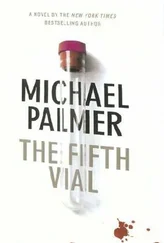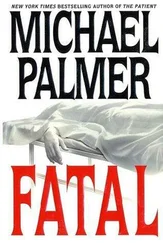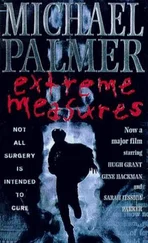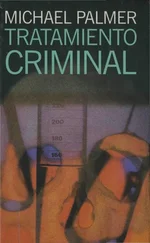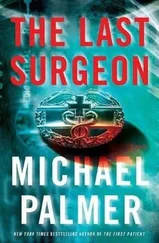“Possibly. We need to find these women to do some blood work.”
“I’ll be happy to help you look,” Mei said. “This floor is for our low-acuity residents. Higher-acuity patients are on the upper floors.”
“I appreciate your cooperation. It will be noted in my report.”
“Right this way.”
Mei led Angie back to the stairs.
“Pardon me, Wu Mei, but I went to take your elevator up here and could not find one on the first floor. I wondered how you transport your residents from floor to floor and down to the street.”
Mei did not reply immediately, and in fact, kept walking to the stairs. The silence was awkward. Suddenly, the nurse stopped and turned.
“Could I see your credentials again, please?” she asked.
Angie felt herself go cold. Her backup plan, which probably could have been her first choice all along, was simply to tell the truth. But with the FBI failing to find Sylvia Chen, and Genesis eerily prescient, some sort of deception seemed called for.
Now, it appeared, she had been caught.
She handed over her ID.
The young nurse, looking genuinely distressed, scanned it briefly and handed it back.
“We have one,” she said gloomily. “At the back of the building. But we don’t use it very much, and I believe my aunt and uncle, who own this place, have had a long-standing arrangement of some kind with the building or the nursing home inspectors. Please, please don’t say anything about it in your report. The elevator is very old, but I have heard my uncle say that the cost to replace it and the structural support around it would force them to close down. And there is really nothing like this place for our Chinese elders.”
“I understand,” Angie said. “You have nothing to worry about from me.”
“Oh, thank you. Thank you so much. I was going to walk you up to the sixth floor. Why don’t we ride instead?”
Angie kept the visage of Sylvia’s mother clear in her mind as she followed Mei down the hallway and to the right. The elevator—truly ancient—was precisely where she had guessed it would be. Mei lifted the wide, double doors and Angie stepped inside the darkened car, turning around and then instinctively backing a step toward the rear wall.
“Stop! Don’t move any more!” Mei cried out in alarm.
She pointed behind Angie at a gap of about two feet between the steel elevator floor and the wooden back wall. Immediately, Angie took a precautionary step forward. Mei closed the doors, then used a key to engage the motor. The car clattered to life and traveled slowly upward, with Angie wondering how close this lift might be to the original one built by Otis in the mid-nineteenth century.
“How long has Riverside been in business?” she asked.
“Since the nineteen forties. My great-grandparents opened the place because too many Chinese were forced to send elderly parents to facilities that did not respect our traditions.”
The elevator came to a hard stop and Angie momentarily lost her balance. Mei turned the key once more to lock the system, then lifted open the door, and motioned for her to follow.
They started with the room closest to the elevator, and immediately, Angie felt a jolt of excitement. Her search was over. Seated on a small vinyl-covered chair, in the corner of a stark space illuminated by light coming through a small, grimy window, and also from a bedside table lamp, was a woman probably in her eighties. But as Angie introduced herself, knelt down, and studied the woman’s deeply etched face at closer range, her certainty faded as quickly as it had come.
She could be Sylvia’s mother, Angie thought— but just as probably, she is not. The eyes, the vague expression—there was something about them that made Angie now feel that her initial reaction had been wrong.
“That’s Mrs. Li,” Mei said, not bothering to move away from the woman. “She is one of our Alzheimer residents. She drifts in and out of lucidness, but as a matter of fact, she does have a daughter who visits.”
“Go on, please.”
“Well, first of all, her daughter has been badly scarred by a fire, and keeps her face covered, so I really can’t describe her.”
“That’s all right,” Angie said, feeling a nugget of suspicion materialize around what seemed like something of a coincidence.
“Let’s keep looking,” Mei said.
Three floors and sixty room checks later, they were back where they had begun.
“And you’re sure that nobody’s off-site?” Angie asked. “Visiting with family? Out shopping?”
Mei shook her head.
“Not at so close to dinner. And no, I checked the books after we finished in the rooms at the change of shifts. All of our residents are on the premises.”
Angie felt a wave of frustration wash over her.
What now?
She asked to see Mrs. Li one more time, but the visit was again unproductive. The woman was significantly older than the one Angie remembered from the photograph in Chen’s office. For a moment, Li seemed to brighten at the mention of the name Sylvia, but just as quickly the glimmer went away.
“Well, I want to thank you again for your cooperation,” she said. “You’ve been extremely gracious with your time.”
“If I come across anybody named Chen with a daughter Sylvia, I’ll be sure to contact you, Ms. Prince.”
“Thank you,” Angie said, though she knew the phone number on the business card Sliplitz had made for her would connect to a nonworking number.
Back to Kansas.
Angie retrieved her suitcase and stepped outside into a biting, late afternoon wind. She searched for a cab, saw that none were coming, and trudged off in the direction of Houston Street, where more were sure to pass. She crossed the alley dividing Riverside and another brick building, which brought her in front of a Chinese restaurant. It was only then that she realized how long it had been since she had last eaten.
The aroma wafting from the modest-sized place beckoned her inside. Even at this hour, the restaurant was busy, mostly with Asians—the indicator Angie had always, without any hard evidence, come to associate with quality, authentic Chinese food. There was an open table near the kitchen. She maneuvered through narrow gaps between chairs and dodged the hustling waitstaff on her way to a seat.
How will Griff take the news? she was wondering.
In one inspired burst she had failed to find the only link to Genesis and the ultimate proof of his innocence.
“It was still worth it,” she said aloud, though her words lacked conviction.
Lost in thought, she did not notice the waitress standing beside her table. The woman turned over Angie’s teacup and filled it from a steaming, metal pitcher. Angie glanced up and her breathing stopped.
The waitress was Professor Sylvia Chen.
DAY 5
4:00 P.M. (EST)
“You wish something drink or you like order?” Sylvia Chen said in a heavy accent.
She was rail-thin, with dark eyes that were nearly lost in shadow, but Angie had no doubt whatsoever that it was she. Her uniform, a black dress shirt and black slacks, was a size too large. The nametag above her breast pocket read simply BAO.
“Sylvia,” Angie whispered, “please don’t react. I know who you are and I know why you are here. I need to speak with you. I came from Kalvesta to find you.”
The steel pitcher in the waitress’s hand began to shake. Dollops of brown tea splashed out from the spout and stained the white tablecloth.
“No understand,” Chen said, avoiding any eye contact.
“Stop it,” Angie said harshly. “This is urgent.”
The color drained from Chen’s face. Her body stiffened.
Читать дальше



